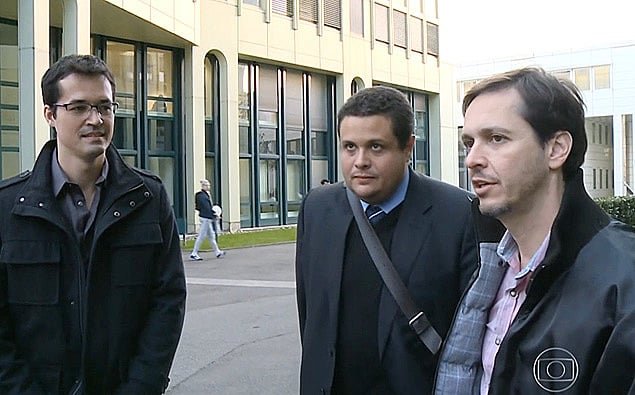Pellela: A Journey of Meaning, Growth, and Transformation

The word pellela may sound unusual or unfamiliar at first glance, but words often carry deeper significance beyond their surface. In many ways, “pellela” can be treated as a symbol—representing the flow of life, the pursuit of wisdom, and the search for meaning in a constantly changing world. Human history shows us that individuals and societies have always sought to define themselves through ideas, values, and aspirations. Just as cultures have their unique traditions and philosophies, “pellela” can be understood as a reflection of resilience, creativity, and transformation.
This article aims to explore “pellela” as more than a simple term. Instead, we will examine it as a concept that bridges personal growth, social development, knowledge, and the human spirit. Through history, education, technology, philosophy, leadership, and daily life, “pellela” stands as a reminder that the pursuit of wisdom is an ongoing journey, not a final destination.
The Origins and Symbolism of Pellela
When exploring “pellela,” one cannot ignore the power of symbols. Across human civilization, words and ideas have represented broader truths about life. Ancient societies used myths and stories to express universal values such as courage, justice, and compassion. In the same way, “pellela” can be interpreted as a symbolic bridge between the known and the unknown, the material and the spiritual, the past and the future.
Symbols are essential to human communication because they compress complex meanings into simple expressions. Consider how the lotus flower represents purity in many Eastern traditions, or how the torch symbolizes knowledge in Western cultures. “Pellela” could be seen in the same light—an invitation to explore wisdom and transformation within ourselves. Just as every culture carries guiding metaphors, “pellela” offers us a lens through which we can reflect on our own journey of growth and resilience.
Pellela in the Context of Personal Growth
Personal growth is one of the most profound applications of “pellela.” Life is full of challenges, uncertainties, and unexpected changes that test our resilience. Some people see obstacles as roadblocks, while others interpret them as opportunities to learn and evolve. The spirit of “pellela” represents the second perspective: seeing adversity as a path toward strength and wisdom.
For instance, individuals who experience setbacks in their careers often feel defeated at first. However, those who embrace perseverance and reflection eventually find themselves stronger, more resourceful, and more determined. “Pellela” encourages us to embrace self-discovery, to look inward for solutions, and to remain flexible in the face of difficulties. Personal growth is not about perfection but about constant adaptation—and “pellela” symbolizes that never-ending process of becoming better, wiser, and more aware.
Pellela and the Role of Education
Education has always been humanity’s most powerful tool for transformation. But true education is not simply about memorizing facts or following rigid structures; it is about cultivating curiosity, critical thinking, and creativity. When framed through the concept of “pellela,” education becomes an ongoing journey where learning never stops.
Students who see education as a checklist of exams often miss the deeper purpose of learning. In contrast, those who embrace “pellela” recognize that knowledge is a living force—one that must be nurtured, challenged, and applied in real life. The modern world has shown us that skills learned today may become outdated tomorrow, which means education must go beyond information and cultivate adaptability. In this sense, “pellela” represents lifelong learning—the recognition that wisdom comes not only from books and teachers but also from experiences, failures, and self-reflection.
Pellela in Society and Culture
No concept exists in isolation. “Pellela” also applies to the collective growth of communities and societies. Culture is a mirror of shared values, and within it lies the ability to guide future generations. When societies embrace “pellela,” they recognize the importance of harmony, inclusivity, and progress.
For example, societies that value cooperation often thrive because they pool their collective wisdom to face challenges. In contrast, when communities neglect shared responsibility, division and conflict arise. The meaning of “pellela” in society is therefore about creating spaces where individuals can grow while contributing to the well-being of the whole. Traditions, festivals, and rituals often reflect this idea, reminding people of their connection to something larger than themselves. Just as a river flows not for itself but for the land it nourishes, “pellela” reflects the flow of wisdom from one generation to another.
Pellela in Leadership and Responsibility
Leadership is one of the most critical areas where “pellela” comes alive. Leaders are not only decision-makers but also custodians of values, vision, and ethical responsibility. History is full of examples of leaders who failed because they sought power without wisdom, and equally full of those who succeeded because they practiced patience, compassion, and foresight.
A leader guided by “pellela” understands that their role is not to dominate but to serve. They seek to unite rather than divide, to guide rather than control, and to inspire rather than intimidate. Whether in politics, business, or community life, leadership that embodies “pellela” is always rooted in empathy, responsibility, and the awareness that every decision has far-reaching consequences. Such leadership is timeless because it reflects the very essence of wisdom in action.
Pellela in Technology and Innovation
Technology has dramatically transformed the way we live, work, and interact. It holds immense potential for progress but also carries risks of misuse, disconnection, and inequality. In the spirit of technology must be viewed not just as a tool but as a responsibility. Innovation without ethical grounding can cause harm, but when guided by wisdom and compassion, it can uplift humanity.
For example, artificial intelligence and digital platforms offer opportunities for education, healthcare, and global collaboration. Yet they also pose dangers like privacy invasion, misinformation, and over-dependence. “Pellela” in this context becomes a call for balance: using innovation to enhance life while maintaining human dignity and values. It reminds us that progress must never sacrifice humanity, and technology should serve as a bridge to greater understanding, not a barrier.
The Future Vision of Pellela
Looking toward the future, “pellela” holds promise as a guiding principle for a more thoughtful and sustainable world. The challenges of climate change, global inequality, and cultural conflict require not just intelligence but also wisdom, compassion, and cooperation. “Pellela” offers a framework for addressing these issues by reminding us that growth without harmony is incomplete, and progress without wisdom is dangerous.
The future shaped by “pellela” is one where people recognize their interdependence, where education is lifelong, where technology is ethical, and where leadership is rooted in service. It envisions a world that does not simply seek advancement for its own sake but balances growth with care for humanity and the planet.
Conclusion
Pellela” is more than a word—it is a philosophy of transformation, wisdom, and balance. It connects the personal journey of growth with the broader currents of society, education, technology, and leadership. At its heart, it teaches us that knowledge without wisdom is incomplete and that true progress comes from harmony between the self and the world.
Whether applied to personal development, cultural growth, or global challenges, invites us to reflect, adapt, and move forward with integrity. It reminds us that life is not static but ever-changing, and our strength lies in embracing that change with wisdom and resilience. By living with the spirit of we can create a future that values both progress and compassion, knowledge and understanding, individuality and community.




